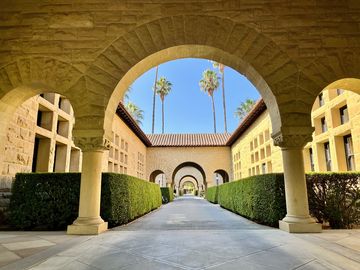PHYSICS DISSERTATION DEFENSE: Ronen Kroeze

Ph.D. Candidate: Ronen Kroeze
Research Advisor: Benjamin Lev
Date: Tuesday May 30th, 2023
Time: 10 a.m.
Location: Spilker 232
Zoom Link: https://stanford.zoom.us/j/97755630216
Zoom Password: email nickswan [at] stanford.edu (nickswan[at]stanford[dot]edu).
Title: Many-Body Spin Physics with Quantum Gases in a Confocal Cavity
Abstract: Despite their simple mathematical formulation, spin glasses host a wealth of complexity, connecting to many different disciplines. Disordered interactions cause frustration that underlies the emergence of a plethora of metastable states. The ability to get stuck in these states results in replica symmetry breaking (RSB) in fully connected models, which is a key concept governing those spin glasses. However, many spin glass models lack deep physical understanding. I will show how our quantum optical platform is uniquely suited to microscopically study spin glass physics. We create and trap Bose-Einstein condensates of 87Rb within an optical resonator. This cavity is tuned to the confocal point, a special geometric configuration where many field modes are simultaneously resonant. I will explain how the confocal cavity acts as an activequantum gas microscope, where light mediates disordered interactions between atoms, and can simultaneously be holographically imaged to reconstruct the many-body physics it mediates. Using this platform, I will demonstrate experimental tuning between ferromagnetism and glassiness at low effective temperature. The system realizes a novel vector spin glass model and does so in an intrinsically nonequilibrium setting. I will show RSB at the level of single disorder instances as well as the emergence of a disorder-averaged Parisi-like overlap distribution. Finally, I will demonstrate how a modification to the laser scheme can couple pseudospin internal states, which leads to the formation of spin domain walls and spin helices. Marrying this coupling scheme to the confocal cavity will enable study of Ising spin glasses and exploration of quantum effects in this driven-dissipative system.